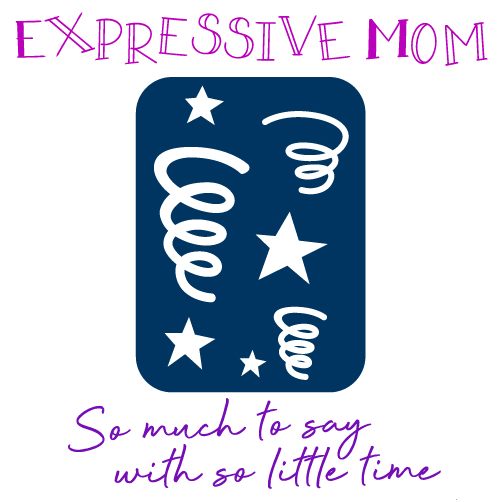The expectation and belief from society are that after a mother gives birth, she will bond with her baby right away. Sometimes that is true, but not always. The reality is that many new parents struggle with their mental and physical health after the birth of their babies. That is because they struggle with postpartum depression or PPD.
Celebrities such as Chrissy Tegan talk openly about their own struggles with PPD as she stated with this tweet.
Getting the awareness out there is great. However, there is a lot of conflicting information as a result of PPD. That leads to many misconceptions about the condition which can be quite dangerous if they are believed.
What Is Postpartum Depression?
Postpartum depression is a postpartum mental health condition that happens after birth such as postpartum anxiety. According to WebMD, it is a severe form of clinical depression that is related to pregnancy as well as birth. Approximately 1 in 7 new mothers ends up with the condition.
PPD can be characterized by:
- Lack of interest in anything that was of interest in the past
- Isolation
- Insomnia (which has nothing to with having to tend to the baby in the night)
- Fatigue (which again, has nothing to with losing sleep from tending to the baby in the night)
- Feelings of hopelessness, helplessness, extreme sadness, and apathy
- Mood swings
- Crying fits
- Inability to concentrating and focusing
- Extreme weight gain or weight loss, depending on how the appetite is affected
- Struggling to bond with the baby as well as bonding with the partner
- Shutting loved ones and friends out
- Thoughts of self-harm and suicide (which means getting help must happen right away)
Sufferers of PPD don’t necessarily have all of the characteristics listed. They can be affected mildly, moderately, severely, or profoundly. However, there is help available for sufferers of PPD. Standard treatments are medication and therapy.
There are plenty of misconceptions about PPD. Listed below are 7 of the most common ones.
1. If The Mom Is Not Crying All Of The Time, Then She Does Not Have Postpartum Depression
Crying is one characteristic of PPD. However, not all sufferers of PPD cry. Some may even put on a happy face just to hide what they are really experiencing and feeling. Parents who have just given birth (or even if they have a baby that is several months old) will want to seek medical help if they are feeling ‘off’.
2. Moms Are Hit With It Right After They Deliver Their Babies
PPD does not happen right after birth. It can develop from 1 to 3 weeks after birth, as it commonly does. It can also develop during the first year of the baby’s life.
The condition that mothers develop right after delivery is referred to as the baby blues. That is normal. That is a result of erratic hormones, physical trauma to the body due to giving birth, and exhaustion. There are many mood swings, a lot of sadness, intense fatigue that you associate with the baby blues. The baby blues can peak from 3 to 5 days after birth, but it does not usually last for longer than 2 weeks. If it does and it worsens, then that is PPD.
3. All Mothers With PPD Can Hurt Themselves Or Their Babies
Suicide and infanticide are extremely devastating and fortunately, it is quite rare. According to one study, it was found that sufferers of PPD that had suicidal thoughts were reported by less than 4 percent of those screened for the condition. In that group, it was found that just over 1 percent were at a high risk of suicide. It was found that 4 in 100,000 had involved infanticide, which means it is rare.
The real risk of PPD is that if it is not treated properly, it can escalate to postpartum psychosis (PPP). That is when the risk for suicide and infanticide are higher. As long as the sufferer of PPD is being treated and monitored, that should not happen.
4. Medication Is The Only Treatment For PPD
Medication is one of the common treatments for PPD. However, that is not the only treatment available and it may not even be appropriate depending on the individual case. Sufferers are affected individually.
Even though medication and therapy are standard treatments, there are others as well that can be quite effective. You will want to look into being involved with a PPD support group as it can be of great help. Alternative therapy can be considered which may include light therapy, omega 3 supplements, or acupuncture. Postpartum Support International can help sufferers or their loved ones find support in their local areas.
Mothers that have PPD who want to breastfeed their infants will be able to do so while taking most SSRIs. They are safe. Their doctors will give them the guidance they need.
5. PPD Can Go Away On Its Own
Treatment is important for PPD. According to the Harvard Review of Psychiatry, it was found that those who were treated for PPD still could suffer from major depressive disorder a year later. Anyone who does not get treatment early on is at risk for developing major depressive disorder in the future.
6. PPD Doesn’t Affect The Mother’s Well-being
PPD sufferer’s overall health will be affected. Insomnia on its own can lead to many chronic health conditions such as diabetes, obesity, and cardiovascular health problems. Poor nutrition will result from uncontrolled PPD which will lead to also chronic conditions as listed above. If the sufferer is not bonding with her baby, this can lead to attachment disorders in the child as well.
7. It Is Not Possible For Fathers To Get PPD
Fathers can get PPD as well which is known as paternal postpartum depression. According to some studies, it was found that the incidence of paternal postpartum depression can happen as often as it does in mothers. There is a connection between maternal PPD which means if one partner ends up with PPD, then the other can easily as well.
The only difference is that paternal PPD has not been studied extensively as maternal PPD. Fathers that are experiencing signs are strongly encouraged to get help as soon as possible so they can be in good overall health.



Connect With Me !